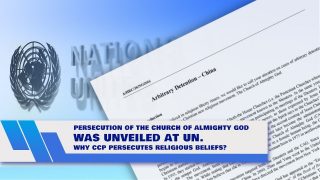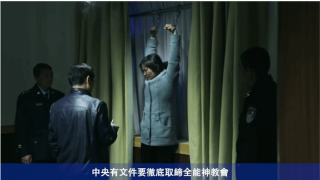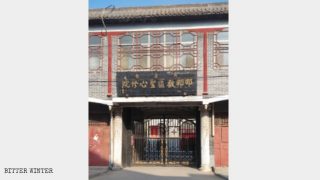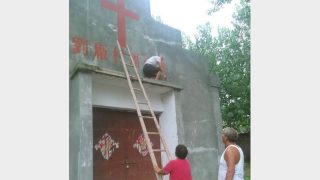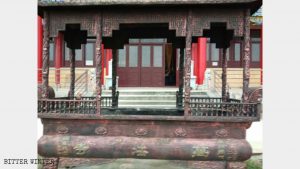
New regulations are banning the sale of religious books, including the Bible, and churches and temples are threatened with the burning of scriptures.
The new Regulations on Religious Affairs that came into force in February 2018 are intended to restrict the spread of religious beliefs from their very sources, including books, pamphlets, and scriptures. Under the regulations, the authorities have designated the Bible and other religious classics as “non-public religious printed products,” and are attempting to stamp out all copies of the books.
As early as March this year, the Bible was removed from the shelves of major online bookstores across China. Shortly afterwards, brick-and-mortar book stores throughout China were also prohibited from selling religious books.
As a result, Bibles are increasingly difficult to find. The owner of a bookstore in Beijing’s Fangshan district told our reporter that not a single copy of the Bible (Chinese Union Version) can be found in any bookstore in the district. In late March, he was ordered by the district Press and Publication Bureau to remove every copy of the Bible from his bookstore. Since then, inspectors have made weekly unscheduled visits to his store to check whether he was selling Bibles contrary to regulations.
A clerk from another bookstore said helplessly, “Now, sales of the Bible are forbidden. Police officers and officials from the Bureau of Culture frequently come to inspect us. We’re afraid to sell it.”
The government has not just banned the public sales of books but has intervened in church distribution of Bibles. Even government-controlled Protestant Three-Self churches do not dare to give the Bible to believers now. One church member reports that Religious Affairs Bureau officials and police officers come to the church frequently to search for Bibles. All religious books, with the exception of state-published materials, are being seized.
Distribution channels are being targeted in the effort to suppress religious publications as well. Delivery companies are now forbidden to deliver religious books. The manager of one courier company told the reporter, “Anything that is related to religious faith cannot be delivered. If such materials are discovered, they will be confiscated, and both parties (buyer and courier) will be held accountable.”
The prohibition of Bible sales follows the long-established pattern of the Chinese Communist Party (CCP)’s persecution of Christianity as a foreign influence. But now, even books at Buddhist temples are being declared illegal.
Last month, five officials, headed by the director of the Religious Affairs Bureau of Jiujiang city, Jiangxi Province in central China, demanded that the abbot of the local Wanfa Temple burn all books of Buddhist scripture held at the temple. The abbot refused. The director of the Religious Affairs Bureau threatened: “If you don’t burn them, we will appoint someone else to run the temple. You will be kicked out.” Another official then declared, “These Buddhist scriptures aren’t legitimate books. They must be burned.”
The state officials then forcibly removed three boxes of Buddhist scriptures, totaling about 170 books, and over 60 Buddhist compact discs. The materials were placed on the incense burner in front of the main hall and burned.
Afterwards, the abbot said sadly, “For us, as Buddhists, these scriptures and CDs are treasures.”
As Bitter Witter has previously reported, early this year the CCP proposed to launch a revised compilation of the Bible, as part of its “sinicization” policy. This would include scriptures from Confucianism, Buddhism, and Daoism, as well as reflect the core values of socialism.
Source: Bitter Winter / Feng Gang
